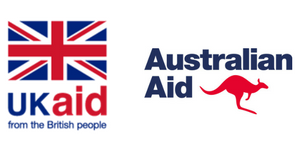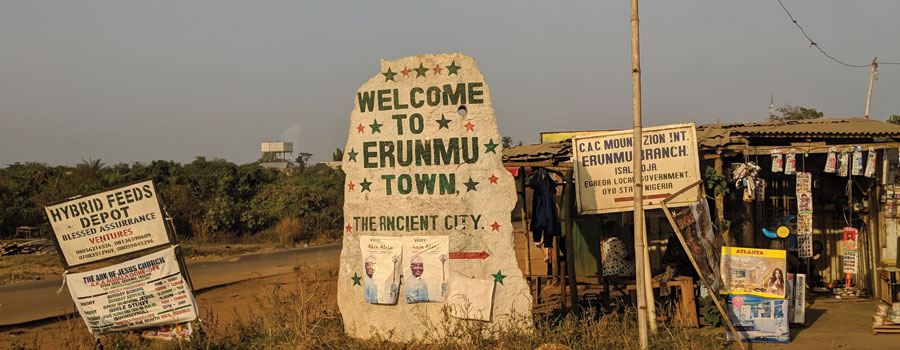For the one billion people globally without any official identification, mobile technology has the potential to deliver identity solutions that enable them to live a better life. However, in order to achieve this we need to understand how individuals use (or don’t use) identity solutions in their day-to-day lives, including any differences between the experiences of women and girls, and men – and the role that mobile could play in these areas.
We recently conducted end-user research in three markets: Bangladesh, Nigeria, and Rwanda, speaking to more than 200 individuals in countries at distinct stages on their journey towards achieving full national identity coverage.
In Bangladesh, we saw how a functional identity purpose – voting – has driven the rollout and penetration of the National Identity Card (NIC). This document is now essential for ‘official’ purposes, and useful in securing more formal employment. However, several respondents noted difficulties in enrolling for the NIC. Beyond formal identity documents like the NIC, identity in Bangladesh is often closely related to one’s family, network, and place of origin.
More broadly, we heard strong examples of the role of mobile technology in people’s lives – and the opportunity to use mobile phones in the identity journey seems a feasible next step. The role of SMS blasts to provide NIC registration information was seen as useful, as was being able to register for the NIC through a mobile agent (an interest shared by citizens across the three countries).
I feel good showing my ID card, it’s my identity and because without it I wouldn’t be able to do important work – Female NIC holder, Kalihati
In Nigeria, we heard citizens describe a complex identity landscape – with multiple forms of identification in use, combined with significant difficulties in securing a Nigerian NIC. For those without a NIC, workarounds were common but not always successful. More foundational tenets of identity were also important: in particular, respect and recognition are linked to an individual’s success, business, professionalism, and appearance.
Particular triggers for identity usage, or prompts to attempt to secure a NIC, were frequently financial – formal identity documentation is often needed to open bank accounts, receive large transactions, or cash cheques. With a very well-developed mobile market, and many tech-savvy consumers, there are exciting opportunities for mobile-based digital identity solutions in Nigeria.
I went to open a bank account and they asked for my NIC; it made me shy because people were looking at me for not having anything to show. So I went to register a week later – Female NIC holder, Erunmu
Finally in Rwanda, we saw a well-developed identity ecosystem founded on impressive digital and technology architecture that is embedded across the country. The country’s Irembo eGovernment platform is popular, and a first point-of-contact for many citizens engaging with public services. NIC penetration is also high. Beyond this, there is significant pride in one’s Rwandan national identity and participants repeatedly highlighted the importance of being a ‘good citizen’.
There is a growing role for mobile technology in the Rwandan identity landscape. Currently, Rwandans are saving photos of their NIC to their SIM cards in order to reduce the need to carry the physical card with them. Mobiles are also used to access Irembo. Building on these strong foundations, participants were broadly interested in further digital identity solutions – with government endorsement of any initiative seen to be particularly important.
When asked to show my identity card, I feel confident because it is something that shows who I am, and I am proud of it: a Rwandan – Male NIC holder, Bugesera
Across the three countries, the intersection between gender and identity is complex and reveals a particular tension. In all discussions, both women and men agreed on equality between genders in securing identity documentation – reflecting equality in citizenship status and the importance of identity solutions. This equality also encompassed birth registration, with all participants noting the importance of registering a child regardless of gender (although, as with research on any topic, social desirability bias is always a risk).
When exploring this area further, many participants of all genders noted that women ‘need’ identity solutions less than men. This hints at a more insidious gender narrative, where women are less valued – or taken less seriously – than men. The latter travel more, have more formal jobs, and are more engaged in society.
The impact of this is two-fold. First, women don’t prioritise securing identity documentation and can therefore be excluded from the services that require these documents (or need to undertake workarounds that often require reliance on a male family member). Second, this culture can entrench gender disparities – reinforcing the notion that women should not be actively engaged in opportunities away from the home, and the more formal economy. The impacts of this can be intergenerational, particularly when considering the important role of identity in inheritance rights and land ownership. There are also wider considerations for digital identity solutions, which will need to address the lower levels of device ownership and access experienced by women and girls, and the lower digital literacy of both groups, in order to ensure that any initiatives are inclusive.
People think that because we stay at home or because we are housewives, then we don’t need the card – Female without NIC, Dhaka (Bangladesh)
Our initial analysis has highlighted a range of cross-cutting trends across Bangladesh, Nigeria, and Rwanda. This includes the aspirational relevance of identity and the pride that identity document ownership creates; the difficulties of national identity enrolment; an openness to digital solutions by citizens from a range of backgrounds, as well as some very useful considerations related to building digital products and services in these countries.
The Commonwealth Digital Identity Initiative is funded by the UK Department for International Development (DFID) and the Australian Government (DFAT), and is supported by the GSMA, its members, World Bank and Caribou Digital




